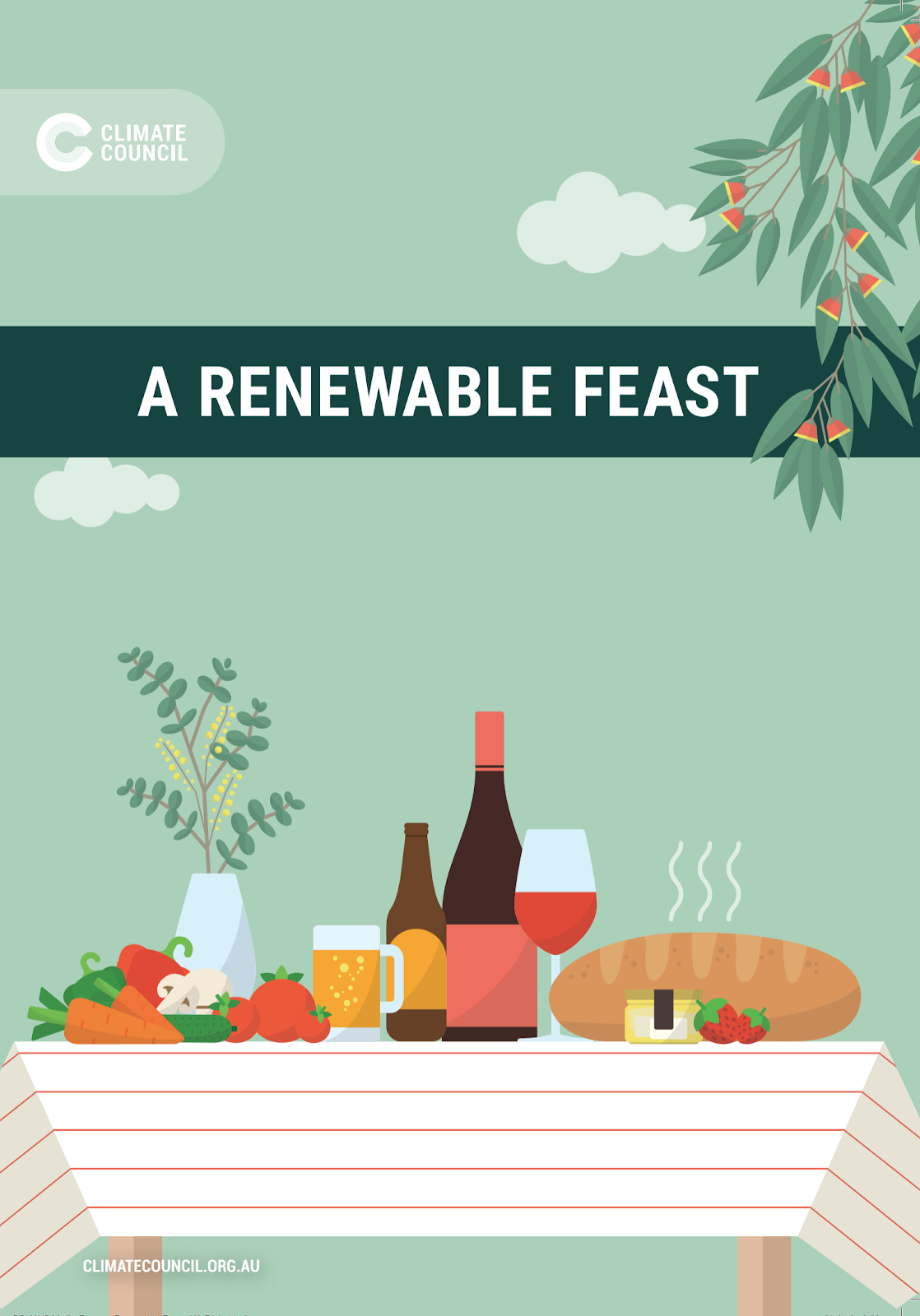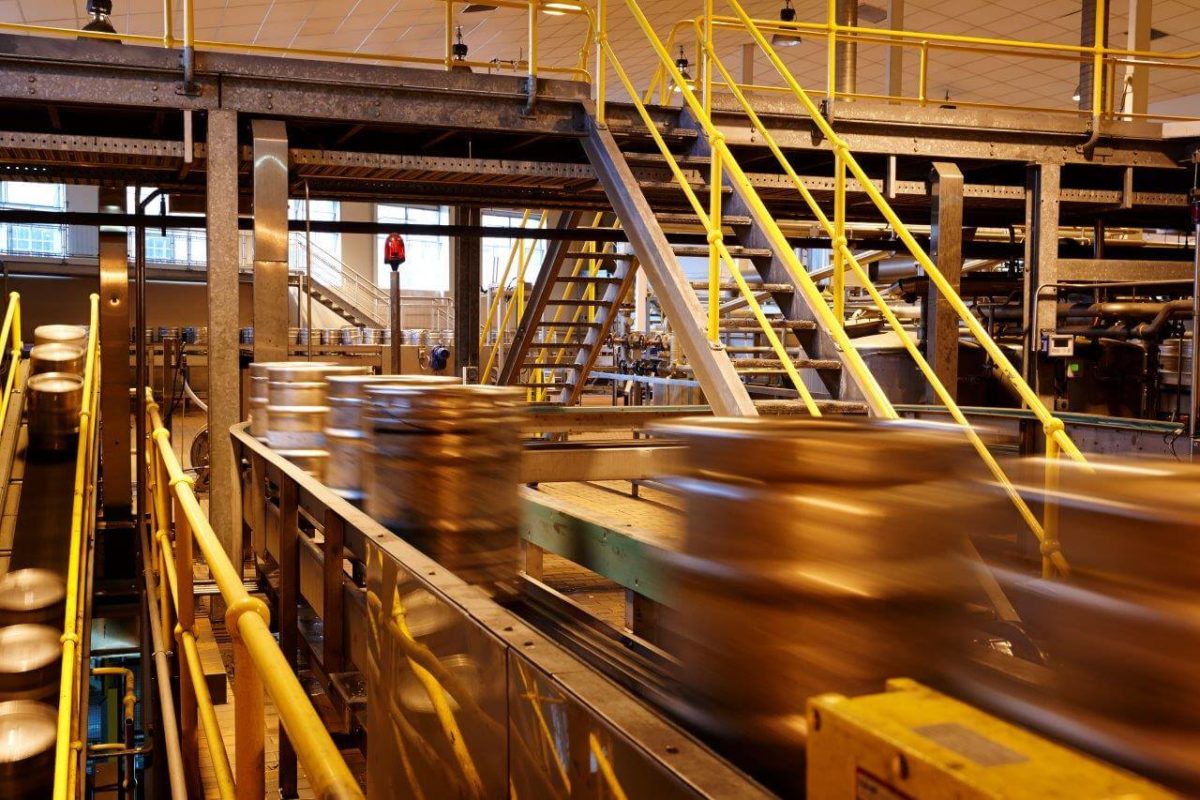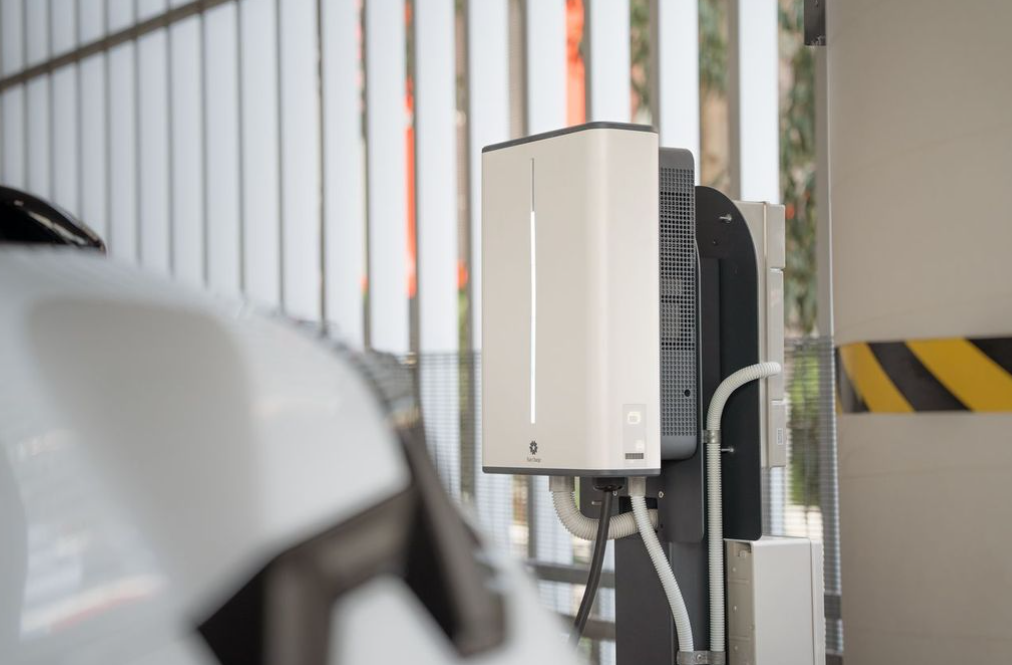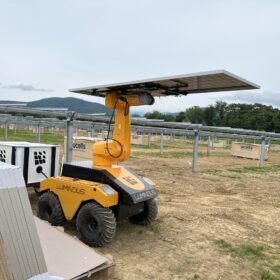With regional food producers at the coalface of extreme climate conditions, and all Australian businesses impacted by rising electricity costs, many food and beverage companies are seeking future certainty and relief in low-cost renewable energies, says the Climate Council’s A Renewable Feast report, released today.
The report represents a deep dive into data published earlier this year in the Business and renewables: Cutting prices and pollution report that showed more than 40,000 Australian businesses have hooked up for renewable energy.
Among them are a number of corporations such as Mars and Carlton and United Breweries (CUB), and a vast array of regional and metropolitan food and beverage producers that have made renewables part of their energy mix.
“As we’re coming into the festive season, it’s the perfect time for us as consumers to support these producers, by purchasing Australian-made food and drinks which are made using renewable energy,” says Petra Stock, Senior Energy Analyst with the Climate Council.
Released against the backdrop of Australia’s lacklustre participation in the 24th Conference of the Parties (COP 24) United Nations climate-change talks in Poland, A Renewable Feast acknowledges the initiative taken by businesses to become sustainable and reduce their carbon emissions.
“Even though the Federal Government isn’t doing enough on climate change we’re seeing all these other parts of the Australian community taking steps to transition to renewable power,” says Stock.
The report also demonstrates the maturity of the solar PV and wind offering, and its ability to integrate with businesses of all sizes.

The rise and rise of solar PV
Among the four case studies highlighted in the report is that of Bakers Maison, a Sydney-based wholesale bakery employing 130 people and running both heating for its bakery ovens and cooling for freezer systems that prepare the baked goods for distribution throughout Australia.
Managing Director of Bakers Maison, Pascal Chanelière, first installed 100 kW of solar generation on the roof of the company premises in Revesby for two reasons, he says: “Obviously, the impact on our bills, but also because we try as much as we can to reduce our carbon footprint.”
A couple of years ago when Chanelière sought to increase the percentage of renewable energy powering his business to 15%, the cost of another 125 kW installation seemed prohibitive, but Smart Commercial Solar brokered an agreement that allowed a group of community investors to put up the almost $400,000 needed.
Bakers Maison gets the benefit of reduced electricity prices, fixed for seven to 10 years, the investors are guaranteed 7% return on their investment, and at the end of the 10-year contract, when the PV system is paid off, Bakers Maison will own it outright and draw free electricity for the rest of the modules’ anticipated 10-year remaining viable life. As a result of what is essentially an offtake agreement from a community-funded solar installation, Chanelière says he was also able to invest the capital he would have spent on solar infrastructure, in new machinery that would grow his business.
Innovative approaches characterise the integration of renewable energy into food-and-beverage businesses. The now famous Sundrop Farms uses concentrated solar thermal technology to hydroponically grow fruit and vegetables — 15% of Australia’s tomato market — all year round on barren land using desalinated seawater.
At Meredith Dairy in Victoria a combination of 99 kW of solar PV, a biomass-fired boiler, and 100% GreenPower purchased from the grid, enables its processing of premium cheeses.
A few cold ones take on the solar heat
Australia’s biggest brewer, CUB produces beers from boutique to pub staples, from Fat Yak to Carlton Draught. Its holding company, Anheuser-Busch InBev, has joined the RE100 program, under which some of the world’s largest companies — including food and beverage manufacturers Mars, Kelloggs, Starbucks and Coca Cola — are committed to powering their operations with 100% renewable electricity.
CUB’s approach for achieving its 100% goal by 2025 involves installing solar PV on its breweries throughout Australia, and a 12-year power purchase agreement (PPA) with German renewable-energy developer, services provider and wholesaler BayWa r.e.. The power purchased will be produced at BayWa’s Karadoc Solar Park, near Mildura.
“Beyond our driving commitment to reduce our emissions, the investment also stacks up when you look at the reduced price we will pay to power our operations,” said CUB CEO Jan Craps. “Moving to renewable energy will ensure that we have certainty of supply and pricing, something that is incredibly important for a manufacturing business like ours.”
Stock says the Climate Council expects the business trend to deploy renewable energy to continue, “because it makes good economic sense”. But she adds, “Obviously, in terms of climate change we need every level of government and every part of the community taking steps to tackle this issue. Certainly we would like to see strong climate policy from the Federal Government.”
Natalie Filatoff
This content is protected by copyright and may not be reused. If you want to cooperate with us and would like to reuse some of our content, please contact: editors@pv-magazine.com.








By submitting this form you agree to pv magazine using your data for the purposes of publishing your comment.
Your personal data will only be disclosed or otherwise transmitted to third parties for the purposes of spam filtering or if this is necessary for technical maintenance of the website. Any other transfer to third parties will not take place unless this is justified on the basis of applicable data protection regulations or if pv magazine is legally obliged to do so.
You may revoke this consent at any time with effect for the future, in which case your personal data will be deleted immediately. Otherwise, your data will be deleted if pv magazine has processed your request or the purpose of data storage is fulfilled.
Further information on data privacy can be found in our Data Protection Policy.